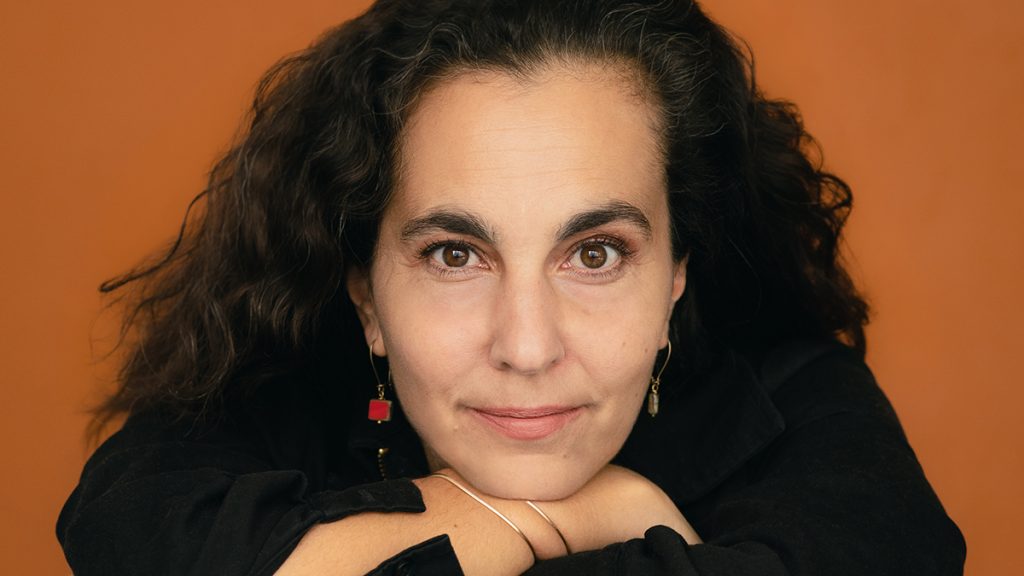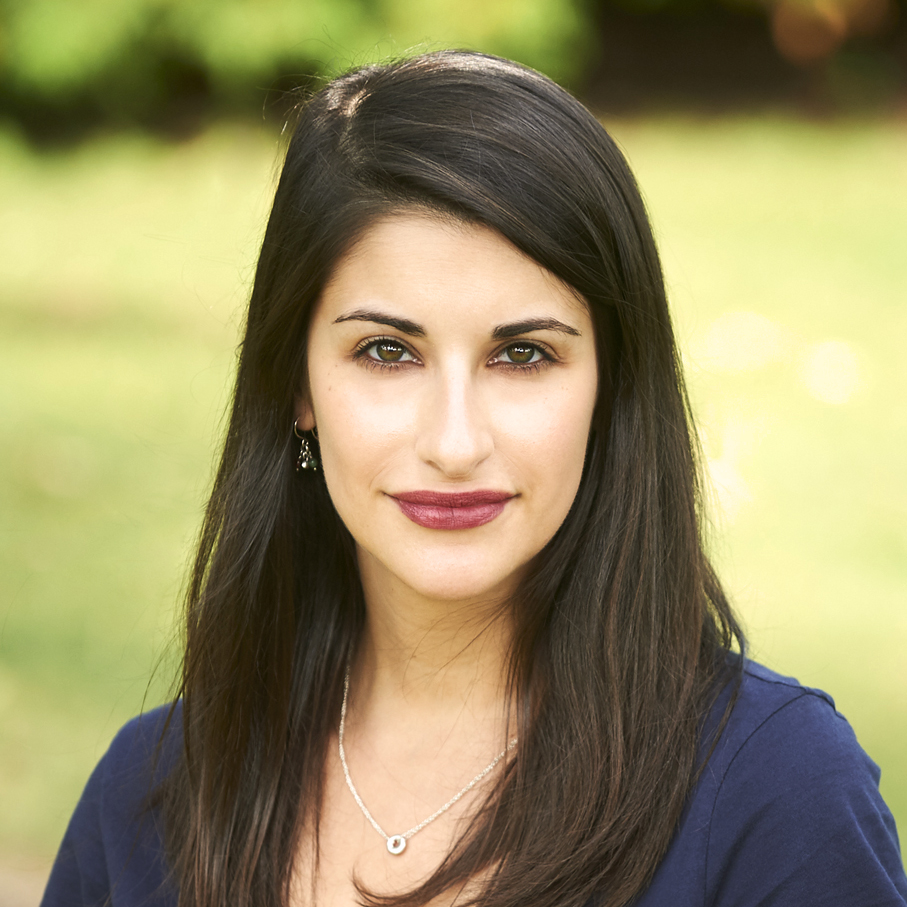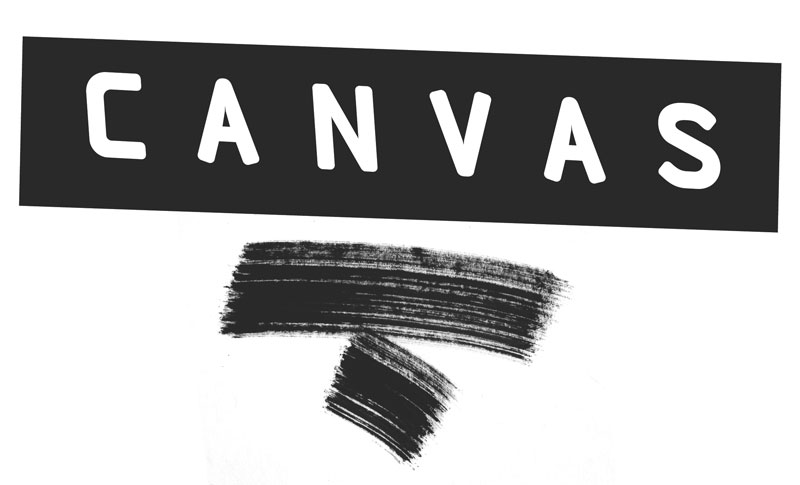Aviva Armour-Ostroff is an actor, writer, producer, and filmmaker. Her film Lune had its Canadian premier at Toronto Jewish Film Festival (TJFF) 2021, and she was the recipient of the Micki Moore Award for best narrative film by a female director. Aviva was on the jury for the 2022 Micki Moore Award. We caught up with her to learn more about Lune, working between theatre and film and what she’s excited to see at TJFF 2022.
Kultura Collective: Hi Aviva. Can you tell us a bit about you, and your work as an actor, writer, producer, and filmmaker?
Aviva Armour-Ostroff: I was born in Montreal, raised in Johannesburg, and have called Toronto home since I was nine, having attended most of my schooling there. I went to theatre school right out of high school (Etobicoke School of the Arts), and have been working in theatre as an actor, producer and director ever since. I wrote Lune as a play, and after I made my first feature film The Drawer Boy with partner Arturo Perez Torres in 2016, I adapted the play Lune into a screenplay. I now work in both theatre and film, loving the cross pollination. Each medium requires such specifically different skill sets, I am privileged to work in both worlds.
KC: Your film Lune had its Canadian premier at the Toronto Jewish Film Festival (TJFF) 2021. Can you tell us a bit about the film?
AAO: Lune tells the story of Miriam, a South African Jew raising her teen daughter Eliza in Toronto. The upcoming election of Nelson Mandela, and the introduction of Eliza’s Black boyfriend, Mike, trigger a manic episode in the bipolar Miriam.
KC: What inspired the story for Lune?
AAO: The story is pretty much a direct rip off of my life, my father being Miriam and I being Eliza. I changed the gender of Miriam to female so I could play her. The politics, the ideologies, the mania, are all inspired by my dad. He is credited with a writing credit in the movie because so much of the dialogue I plagiarized from real life.
KC: The film tackles big issues – mental health, politics, parenting, religion, identity, and the failure of the care system. How has the film resonated with audiences in Toronto and globally?
AAO: Most people have watched the film online, so I have limited access to live responses. That said, when I have had the opportunity to watch the film with an audience and attend Q and A’s, most people are affected by the themes of mental health. There seem to be few empathetic or non-condescending portrayals of bipolar in film, so I think people are responding to seeing either themselves or loved ones on screen in a realistic way. I am hoping people feel seen, and other people feel informed about the realities of bipolar. I wanted the film to inspire discussions about race and identity, so I’m hoping people left their screens and started discussions.
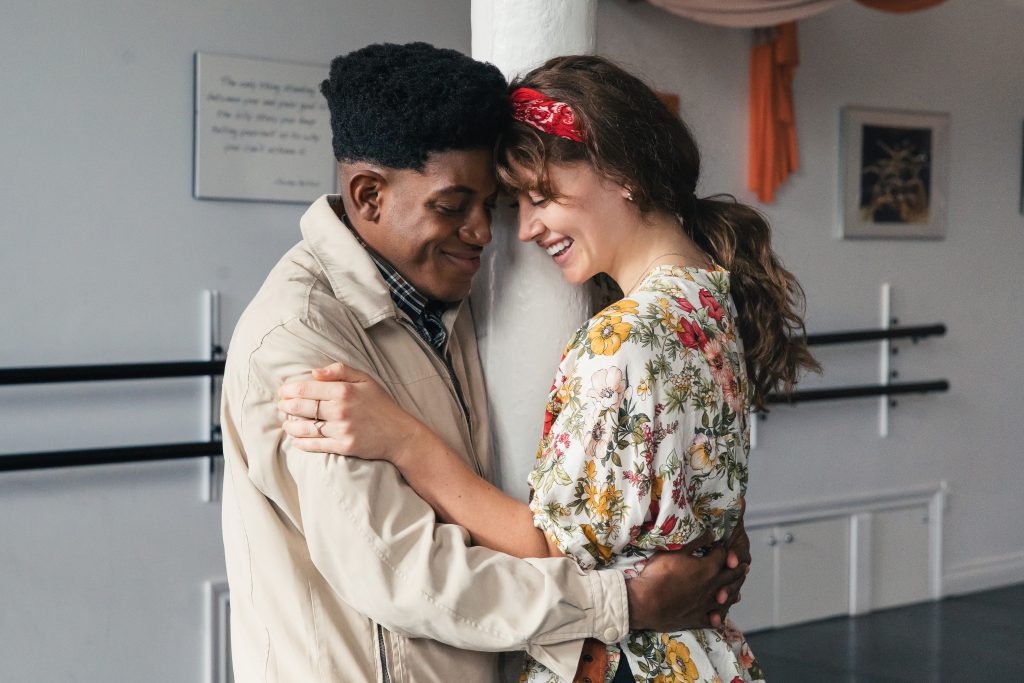
KC: TJFF 2021 was an entirely virtual Festival. Did the pandemic change the way audiences responded to your film? Has it changed the way you think about filmmaking?
AAO: It’s hard to say how people viewing the film from home responded differently than in a theatre because I can’t spy on people at home. Maybe they walked away from the film, maybe they experienced a deeper catharsis than they would have in public. Who knows. The pandemic has changed the way I think about filmmaking only in the sense when watching films now….I think….how did they shoot that crowd scene?
KC: You also have a background in live theatre. How did you make the transition to film? What excites you about making films vs live theatre?
AAO: Theatre is where my heart lives. I had done some acting on film and TV but the real transition into film came when Arturo and I took the play The Drawer Boy, and adapted it into a film. Because it was originally a play, and because we cast theatre actors, the leap didn’t seem too great. That said, I learned a tonne about producing and directing for film in a short time. I enjoyed bringing both the practical and aesthetic theatrical elements into filmmaking. With Lune, we lead our crew like a theatre crew, and most of our cast were people I knew from the theatre world. I have so much to learn as a film actor, and it excites me to hone and develop those techniques. I’ll never forget the first time I watched The Drawer Boy and I started making notes in my head for the actors before realizing….that was it. No more changes. Theatre is ever evolving and a constant interaction with the audience. And fleeting. Both processes bring me great joy and satisfaction.
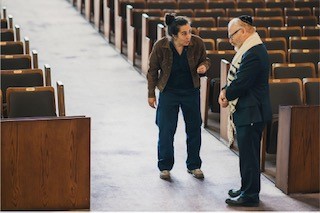
KC: Lune was the recipient of the 2021 Micki Moore Award at TJFF for best narrative film by a female director. Can you tell us a bit about the award and what it meant to receive it?
KC: Winning the Micki Moore Award was incredibly validating. This year I was honoured to be on the jury, and the quality of films was very high, making me feel even more humbled and appreciative of the win last year. I look forward to a day when there’s more gender and race equality in the film world, so awards that uplift female filmmakers or BIPOC filmmakers are no longer necessary. Meaning, there’s a need for an award that highlights female filmmakers because there are still a disproportionate amount of us not being acknowledged and funded. There is a movement to change that, which is very exciting.
KC: You will be on the jury for the 2022 Micki Moore Award. What are you hoping to see from the submissions?
AAO: This year’s winner made a unique, brave film. The acting was so realistic I thought I was watching a documentary. I hope its win at the TJFF propels the film to be seen by a wide audience.
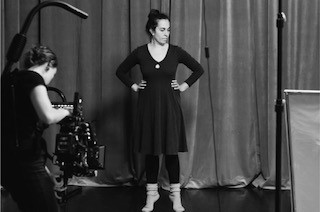
KC: TJFF 2022 will be a hybrid model with screening in theatres, outdoors and online. What does a return to seeing films in a theatre mean to you?
AAO: Sharing an experience with an audience. It has been said that when an audience watches live theatre, their hearts beat in the same rhythm. There’s something very primitive about breathing at the same time as a large group of people- a collective, shared experience. I am looking forward to hearing the audience’s reaction to films like The Radiant Girl, Sabaya, and Rose.
KC: What are you working on right now?
AAO: I have been producing a play called The Cold War by theatre company VideoCabaret. It is a sardonic telling of the history of Canada during the Cold War period, featuring incredible actors (including MM Award jury member Valerie Buhagiar) and a visual style unlike anything you’ve seen. VideoCabaret is brilliant. Arturo and I are slowly planning our next feature. Most of my creative energy these days is being directed at removing the English Ivy taking over the garden in my new home. Lune has been invited to Yesh!, a film festival in Zurich, and Arturo and our son and I will be going in June.

KC: What other Jewish creatives you should know about?
AAOI: Tracey Erin Smith: Tracey is the Queen of solo show development. She has created her own (The Burning Bush), and leads workshops to help others create their own solo show. She also hosts Drag Heals, a documentary TV series that follows drag artists as they build their own show. www.Soulo.ca
Adam Lazarus: This guy is funn-eee. And dark. He has a play called Daughter which blew my mind, and routinely teaches bouffant clown. @adlazarus/twitter
Michael Rubenfeld: Michael is an actor, producer, writer and director that moved to Poland a few years ago. He creates thought provoking, often political theatre, most recently the show Lucky Jew. He is the co-artistic director of the FestiVALT, which celebrates and investigates the complexities of the contemporary Jewish Polish landscape. mrubenfeld.com
Ali Eisner: Ali is one of those wildly multi-talented human beings: a singer, writer, director, photographer, musician, actor, comedian and puppeteer. And really good at all those things. They are currently working on their dream job as a puppeteer for Fraggle Rock. @alieisner/instagram
Julie Tepperman: is an actor, playwright, and co-artistic director of Convergence Theatre. Often her plays are site-specific. Perhaps my favourite is Yichud (Seclusion), where she transformed Theatre Passe Muraille into a synagogue. convergencetheatre.com
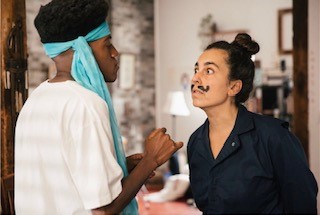
KC: If you could have Shabbat dinner with anyone (Jewish), who would it be and why?
AAO: I would like to have Shabbat dinner with Sarah Silverman because she’s hilarious, talented and direct. I’d want to understand her perspective on marrying feminism with Judaism. Also wouldn’t mind breaking bread with Jesus to hear his perspective on the last 2000 years.
KC: Lightning round question!
- Applesauce vs sour cream? If I can’t have both, sour cream
- Raisin vs plain challah? Get your raisins out of my challah!
- Hummus vs baba ghanoush? Hummous all the way.
- Tel Aviv or Jerusalem? Tel Aviv. Can I choose both?
- Purim vs Passover? Matzah hunt!
- Fiddler on the Roof vs Joseph? Oooo tough one. Fiddler!
- Larry David vs Jerry Seinfeld? Seinfeld. Or Adam Sandler
- “Puppy for Hanukkah” vs “The Hanukkah Song”? “Hanukkah Song.”
- New York vs Montreal bagels? Montreal hands down I will fight to the death to defend this!
- Pomegranate vs apple? Apple a day. Pomegranate when in season.
Aviva Armour-Ostroff works in Toronto as an actor, director, writer and producer. She is a member of the theatre company ARC, where she co-directed ARC’s production of Oil. As an actor, Aviva has appeared in ARC’s productions of Human Animals, (Dora Nomination, Best Ensemble), Dissidents, Pomona, (Dora Nomination, Best Ensemble) and Moment (Dora Nomination, Best Performance). Other favourites include VideoCabaret’s The Great War (Dora Award, Best Ensemble), Hedda Gabler (Necessary Angel/Canadian Stage), Age of Arousal (Factory Theatre), and The Miracle Worker (Western Canada Theatre). Aviva was the founder and Artistic Director of The Lab Cab Festival for thirteen years. She is the producer and co-director of the film adaptation of Michael Healey’s The Drawer Boy. Aviva wrote, co-directed, and starred in the feature, Lune, which won the Audience Choice Award at Cinequest, The Micki Moore Award for Best Feature at TJFF, and was recently nominated for a Canadian Screen Award for Best Performance.
Lune, 2021: Miriam is a South African born Jew raising her 17 year old daughter Eliza in Canada. Nelson Mandela’s upcoming election triggers a manic episode in the bipolar Miriam, who has spent years fighting apartheid. Fuelled by the introduction of Mike, Eliza’s Black boyfriend, Miriam‘s mania escalates as she navigates politics, religion, the metal health care system, and parenting. Learn more at www.opencityworks/lune and @lunethefilm/instagram
The 30th Toronto Jewish Film Festival runs from June 9 to 15 (In-Theatre) and June 16 to 26 (Online). TJFF 2022 features the best in Jewish-content film from Canada and around the world including International, Canadian and Toronto Premieres: Dramas, Comedies, Documentaries, Archival films, Short films, and more! TJFF produces programming and projects offering the best feature films, documentaries and shorts from Canada and around the world, on themes of Jewish culture and identity. Learn more at tjff.com

